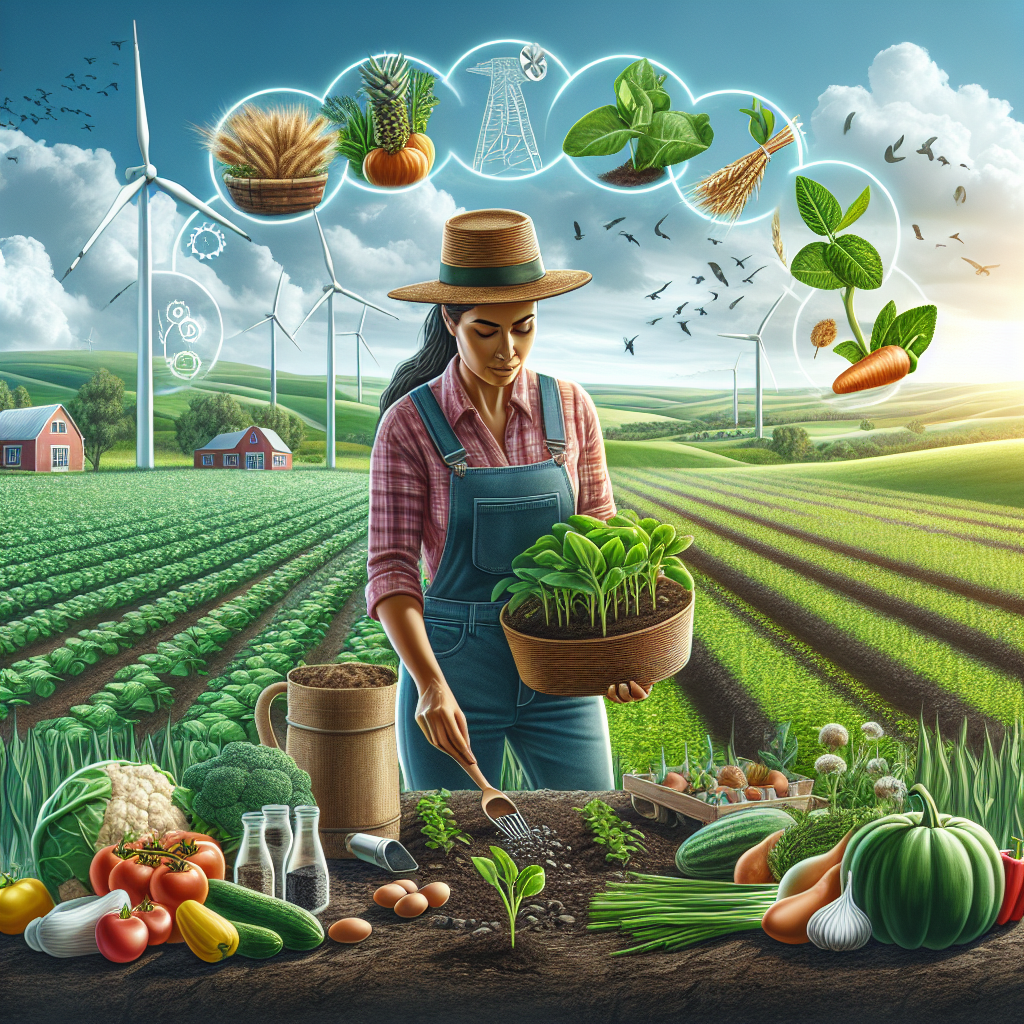Sustainable Agriculture: Farming Practices that Protect the Planet
In an era where the challenges of climate change, biodiversity loss, and resource depletion are more prominent than ever, the need for sustainable agriculture practices has become increasingly crucial. Sustainable agriculture is an approach to farming that prioritizes environmental health, economic profitability, and social and economic equity. It seeks not only to meet the food and textile needs of the current generation but to ensure that future generations have the resources necessary to do the same. This involves a range of practices aimed at protecting the planet while producing food, fiber, and other materials. Below, we delve into the principles of sustainable agriculture and explore some of the farming practices that are leading the way in environmental stewardship.
Principles of Sustainable Agriculture
The foundation of sustainable agriculture rests on three core principles: environmental health, economic profitability, and social and economic equity. These principles guide the sustainable agriculture movement in its goal to create a system that can be maintained indefinitely without causing harm to the environment or society.
– Environmental Health: This principle involves protecting the environment by preserving natural resources, biodiversity, and the overall ecosystem. Practices under this principle aim to minimize pollution and waste, improve soil health, and conserve water.
– Economic Profitability: For agriculture to be sustainable, it must also be economically viable. This means farmers must be able to make a living, support their families, and contribute to the local economy through their practices.
– Social and Economic Equity: Sustainable agriculture also focuses on treating workers fairly and contributing positively to the local community. This includes ensuring safe working conditions, fair wages, and contributing to community development.
Farming Practices that Protect the Planet
Several farming practices have been identified as particularly effective in promoting sustainability and protecting the environment. These include:
– Crop Rotation and Diversity: Rotating crops and planting a variety of crops can help improve soil health, reduce pest and disease pressures, and increase biodiversity on the farm.
– Conservation Tillage: Reducing or eliminating tillage can help preserve soil structure, reduce erosion, and increase water retention in the soil.
– Cover Cropping: Planting cover crops during off-seasons can protect and improve soil health, manage water runoff, and enhance biodiversity.
– Integrated Pest Management (IPM): IPM involves using a variety of methods to manage pests in the most environmentally friendly way possible. This can include biological control, habitat manipulation, and the use of resistant crop varieties.
– Agroforestry and Permaculture: Integrating trees and shrubs into agricultural systems (agroforestry) and designing farming systems that mimic natural ecosystems (permaculture) can increase biodiversity, improve soil health, and sequester carbon.
– Water Management: Implementing efficient irrigation practices and water conservation measures can significantly reduce water use and protect water resources.
– Organic Farming: Avoiding synthetic fertilizers and pesticides in favor of natural alternatives can reduce pollution and improve soil health and biodiversity.
– Renewable Energy Use: Utilizing renewable energy sources, such as solar or wind power, can reduce greenhouse gas emissions and decrease the carbon footprint of farming operations.
These practices not only contribute to environmental protection but often result in more resilient farming systems that can better withstand the effects of climate change and other challenges.
FAQs on Sustainable Agriculture
Q: Is sustainable agriculture more expensive than conventional farming?
A: While some sustainable practices may require higher initial investments, they often lead to cost savings over time through improved resource efficiency, reduced input costs, and enhanced ecosystem services.
Q: Can sustainable agriculture feed the world?
A: Yes, research indicates that sustainable agriculture can produce enough food to feed the global population. However, this requires a shift in food distribution and consumption patterns, as well as significant investment in sustainable farming practices.
Q: How does sustainable agriculture contribute to climate change mitigation?
A: Sustainable agriculture practices can contribute to climate change mitigation by reducing greenhouse gas emissions, increasing carbon sequestration in soils, and improving overall ecosystem resilience.
Q: Are there certifications for sustainable agriculture?
A: Yes, there are several certifications available for sustainable agriculture, including organic, fair trade, and Rainforest Alliance certified. These certifications help consumers identify products that have been produced using sustainable practices.
In conclusion, sustainable agriculture presents a viable and necessary path forward in the quest to protect our planet while providing for its inhabitants. By adhering to the principles of environmental health, economic profitability, and social and economic equity, and by implementing proven farming practices, farmers can contribute to a more sustainable and equitable world. As consumers, supporting sustainable agriculture through our purchasing decisions can drive demand for sustainable products and encourage more farmers to adopt these practices. Together, through sustainable agriculture, we can work towards a healthier planet and a secure future for generations to come.

